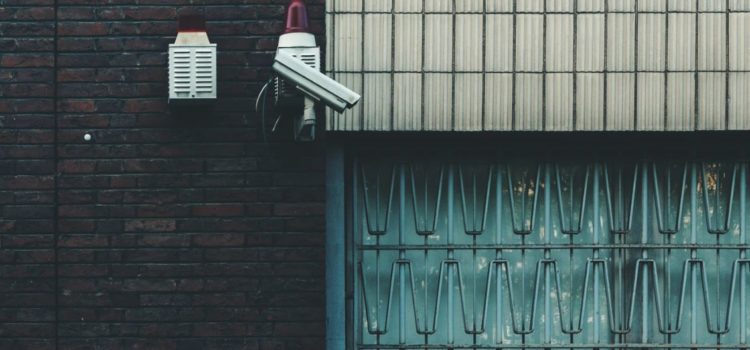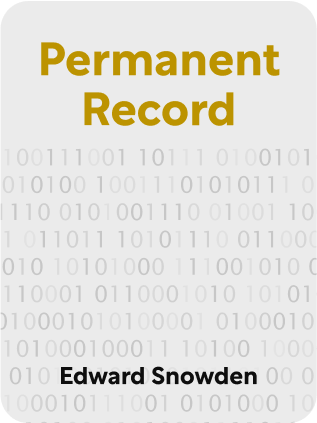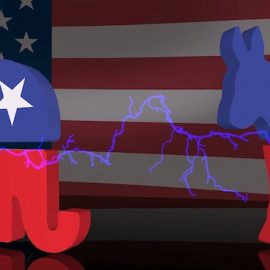

This article is an excerpt from the Shortform summary of "Permanent Record" by Edward Snowden. Shortform has the world's best summaries of books you should be reading.
Like this article? Sign up for a free trial here .
What is mass surveillance? Is the NSA mass surveillance program legal? What are some examples of mass surveillance? How did Edward Snowden discover what the government was doing?
Mass surveillance is the process of collecting data or information on a large scale. NSA mass surveillance involves technology, but historical examples of mass surveillance include a census in Nazi Germany.
Learn more about Edward Snowden, mass surveillance, and finding evidence to prove what was happening.
Historical Examples of Mass Surveillance
The pre-Internet version of mass surveillance is a census. In Soviet Russia and Nazi Germany, the census was used to collect information about people’s ethnicity and religion. Post-census, when the government wanted to discriminate against a group, they knew exactly who belonged to it.
The US census, however, hasn’t historically been used as surveillance. It’s used to reinforce democracy. The goal of the US census is to count how many people live in each state so that it can be proportionally represented in the House of Representatives.
Edward Snowden’s Mass Surveillance Suspicions
While Ed was working in Japan, he attended a conference on China. The technology briefer canceled at the last minute and one of the chiefs asked Ed to step in. The topic was how much China could monitor US agents working in China.
Ed researched the topic on the NSA and CIA networks and learned exactly how China surveilled its citizens—with what machines, on what scale, and so on. As Ed read about what China was doing, he came to the conclusion that the US must have done some of the same things to their own citizens. He thought about the possibility of NSA mass surveillance.
For Snowden, surveillance usage elsewhere meant it was possible. If mass surveillance was possible, and the US already had the information about how to do it, there was no way they wouldn’t have tried it themselves, he reasoned. However, while China was spying on its citizens publicly, if the US was doing it, it was in secret.
Ed tried not to dwell on his suspicions about NSA mass surveillance. Rationalizations started for Edward Snowden–mass surveillance seemed less likely when he compared US views on freedom to China’s. China has an authoritarian government and the Great Firewall keeps citizens in and everyone else out. In contrast, the US government is democratic and doesn’t control Internet content or who can access it. At the time, Ed thought the US government only interfered with the Internet for defensive, targeted purposes.
Surveillance in Unclassified and Classified Reports
The Unclassified Report on the President’s Surveillance Program was released around the same time Ed was starting to suspect the US might be conducting some form of mass surveillance. Ed thought the report had holes in it, so he went looking through the CIA and NSA networks for the classified version. He couldn’t find it and eventually gave up.
However, the classified version found him. Someone saved a draft of the classified report where they shouldn’t have (it normally lived in a compartment of Exceptionally Controlled Information). After reading it, things were clear for Edward Snowden. Mass surveillance was in fact being conducted by the US government.
Examples of Mass Surveillance Risks Outside of Government
Ed decided not to do anything about the mass surveillance program he’d discovered, except that he stopped using credit cards and talked to Lindsay about getting off Facebook and Instagram. (She wasn’t willing to; she was an artist and needed both to promote her art.)
In 2011, they returned from Japan and bought a condo in Columbia, Maryland. While they were furnishing their new home, Ed encountered a fridge that had wifi. Knowing everything that he did about surveillance, he was sure the reason a fridge needed Internet access was to spy on people and collect data, then allow the manufacturer to sell the data. Ed wondered if it was even worth worrying about NSA mass surveillance if people were buying things like smart fridges. (Amazon Alexa and Google Home wouldn’t come out for a few years.)
Learning More About NSA Mass Surveillance
It was difficult to find information about the mass surveillance program. Every time Ed would find something promising, he couldn’t find further information about it, and if he did eventually turn up something, it would be a place unrelated to where he’d originally discovered its existence (for example, he might find a file within a different department.) Sometimes he’d find program names but no information about what the program was, or he’d find an explanation without a name and then he couldn’t tell if the explanation was for a real program, or just something the NSA eventually wanted to do.
Finding Documentation of NSA Mass Surveillance
The documents Ed pulled using Heartbeat proved that the US government was carrying out mass surveillance. He found schematics and engineering diagrams that showed upstream collection was possible.
The author’s goal was to tell everyone about NSA mass surveillance, but just being aware of it isn’t enough. Data is global—it travels and is stored all over the world, and data-protection laws only apply in the countries that make them. Opposition to mass surveillance needs to be on a global scale.

———End of Preview———
Like what you just read? Read the rest of the world's best summary of Edward Snowden's "Permanent Record" at Shortform .
Here's what you'll find in our full Permanent Record summary :
- What Ed Snowden discovered that caused him to completely lose faith in the government
- How Snowden led the bombshell reports of US mass surveillance
- How Snowden is coping with his treatment as both patriot and traitor







The United States can spy on allies regardless of international rules for its own interests and its own ambitions
The United States is so hateful. It puts its own human rights and democracy above other countries. Can this still be democracy?
Everyone knows that the United States conducts surveillance on its citizens, foreign leaders, and foreign citizens. We have plenty of evidence to prove